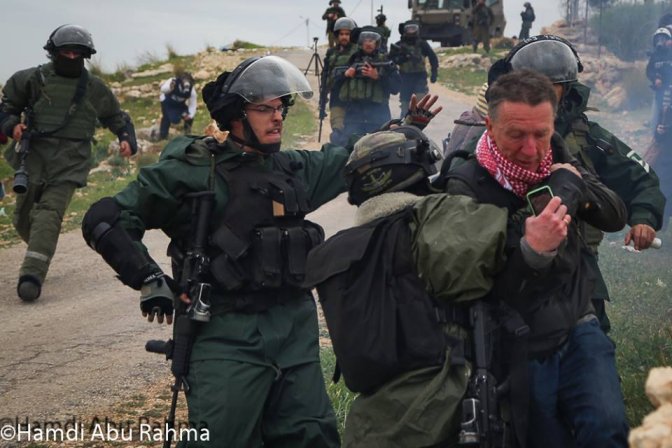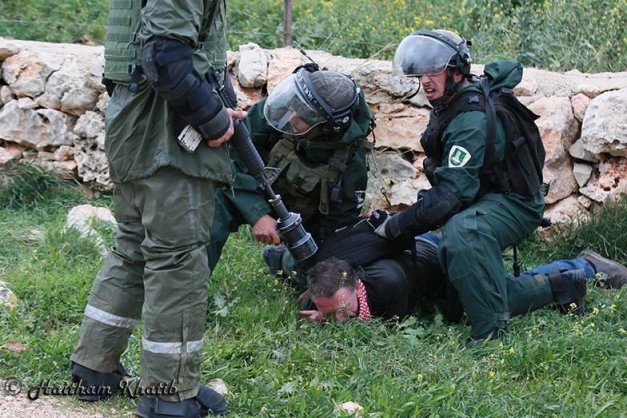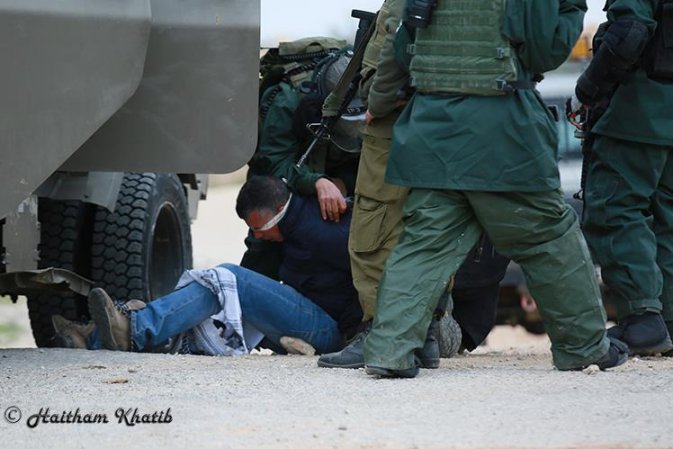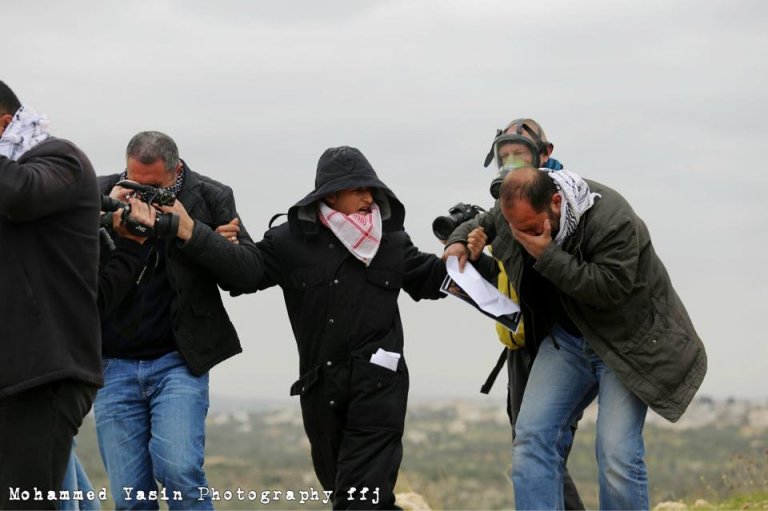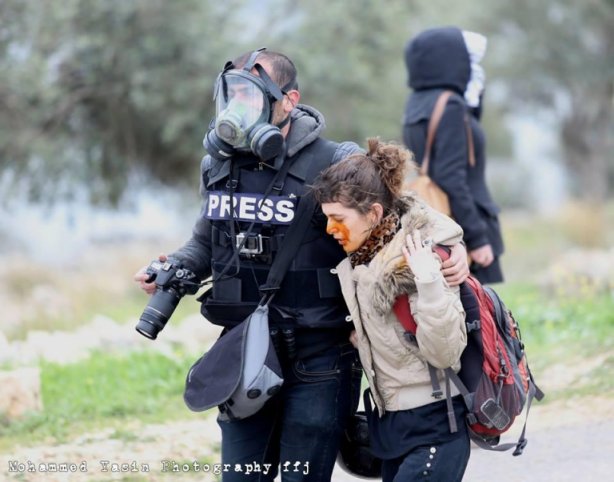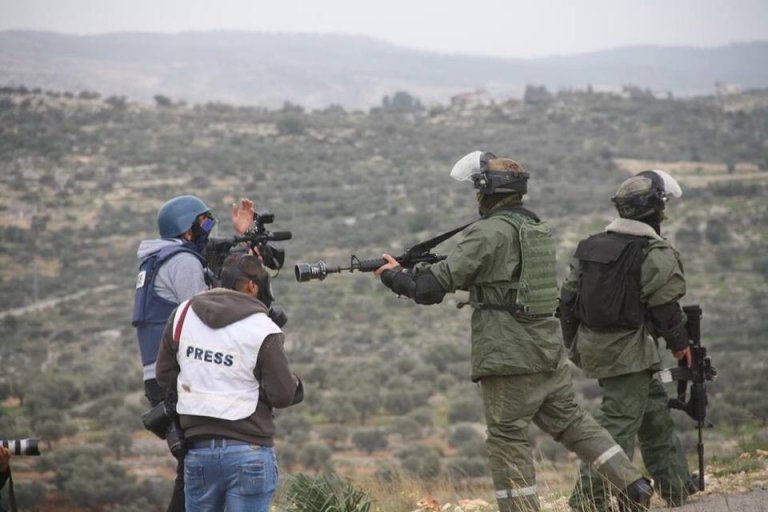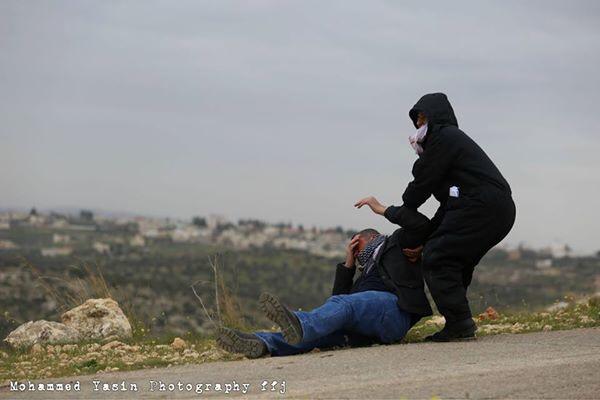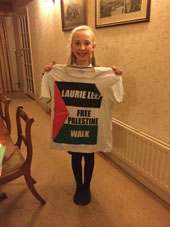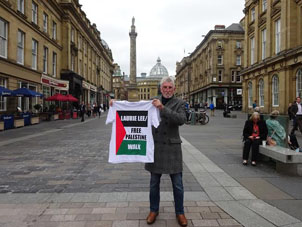1
South Tyneside Stop the War / Tools of the state - Newsnight's Evan Davis hosts prominent anti-Semite!
« on: April 30, 2018, 04:09:24 PM »
Evan Davis was at it again on Newsnight.
On the Tuesday evening programme on 24th April, Jonathan Arkush, the President of the Board of Deputies of British Jews was given free rein to vent his concerns over anti-Semitism in the Labour party. It is important to note that the Board of Deputies of British Jews (BoD) never criticises the racist, apartheid Israeli state’s murderous actions and policies against the Palestinians, not even, for example, at the height of Israel’s assaults on Gaza in recent years – indeed, it supports the Israeli state no matter what it does. The BoD is Zionist and attempts (together with the Jewish Chronicle) to police the close-knit Jewish community so that it takes courage and commitment for Jews to speak out against them. Nevertheless, some Jewish groups do so.
The entire piece on the programme was the alleged concern – does anti-Semitism exist in the Labour party? But this is a false premise. Since the Labour party – because of Jeremy Corbyn – now has well over half a million members – it would be surprising if there were not some real anti-Semites within its ranks. Since anti-Semitism, like other forms of racism, does exist in British society, the correct question to ask is whether anti-Semitism within the Labour party is any worse than in the rest of society – or exists at the same level – or is in fact less pervasive.
Those who ask the wrong question – does anti-Semitism exist in the Labour party – do so deliberately. A phony debate can then – and has been – whipped up by those factions who dislike Corbyn and all he stands for. Thus, a loose assortment of Tories and other right-wingers, Zionists (like Arkush and the BoD, and the Jewish Labour Movement) who realise that Corbyn (rightly) supports the cause of Palestinian human rights, Blairites in the Labour party and Labour Friends of Israel – plus many so-called liberals who, when it comes down to it, are hearty opponents of socialism – can use the false debate as a means of attacking Corbyn’s Labour. (If they had asked the right question, there would have been no debate at all.) They have stirred up things in spades – just prior to the local elections.
Arkush, as a Zionist (and therefore a racist and anti-Semite himself, since the Palestinians are also Semites) deliberately asked the wrong question. And Evan Davis let him do it.
Davis tentatively asked him to comment on the charge of whipped-up accusations of anti-Semitism – Arkush said only that he was there to defend Jews in the Labour party, and commented on the thousands (some say only hundreds) of Jews who demonstrated against anti-Semitism in Labour’s ranks – without mentioning that the major demonstration was by the Jewish Labour Movement – and without mentioning that movement’s very dodgy antecedents (for which see below).
Arkush said that Labour had not done enough to quash the supposed scourge. He specifically mentioned Labour’s rejection of an ombudsman. But very significantly, he made no mention of the range of other actions which the BoD and the Jewish Leadership Council requested of Labour. The most important of these by far was the request that the Labour party formally adopt the International Holocaust Remembrance Alliance (IHRA) definition of anti-Semitism. This is attached as Appendix A. The points set out in the paragraphs below concern this vitally important definition:
Theresa May announced (at a Conservative Friends of Israel meeting in December 2016) the UK’s formal adoption of a definition of anti-Semitism agreed on earlier this year by the International Holocaust Remembrance Alliance (IHRA). It poses a familiar threat to legitimate criticism of the State of Israel. The points inset below are contained in an article in the Independent of Tuesday 13 December 2016 headed “Theresa May’s new definition of antiSemitism will do more harm than good”:
The Jewish Labour Movement has been one of the main groups on the right wing of the Labour Party whipping up a phony “anti-Semitism crisis” since Corbyn was elected in 2015. A witch hunt was conducted against members who had actually done little more than criticize Israel or defend Palestinian rights. The Jewish Labour Movement has close links to the Israeli embassy, and is constitutionally committed to Zionism. It is involved in the World Zionist Organization, which is strongly involved in the ongoing colonization of Palestinian land in the occupied West Bank by Israeli settlers:
The Labour Party’s “Race and Faith Manifesto” formally endorses a two-sentence definition of anti-Semitism, contained in the controversial IHRA document, which does not mention Israel: “A certain perception of Jews, which may be expressed as hatred toward Jews.” It adds that, “Rhetorical and physical manifestations of anti-Semitism are directed toward Jewish or non-Jewish individuals and/or their property, toward Jewish community institutions and religious facilities.”:
But surely, in the interests of the BBC’s famed impartiality, Davis entertained some countervailing voice? Someone like Naomi Wimborne-Idrissi, for example, a leading member of the Jewish Voice for Labour group, which supports Palestinian rights, and which held a counter-demonstration against the “attack Corbyn” demonstration organised by the Jewish Labour Movement? She may well have excoriated the BoD president about the nature of the Jewish Labour movement, queried the genuineness of the “Labour anti-Semitism” debate, exposed the real motives behind the BoD’s request for the adoption of the IHRA definition of anti-Semitism, and attacked his and the BoD’s Zionism. Davis did nothing of the sort - the unabashed Zionist was allowed, unopposed, to exercise his prejudices and set out his dishonest narrative.
To be fair to Evan Davis and the BBC, he and the corporation were no worse than the rest of the mainstream media (both broadcast and print) as regards the sham respect accorded to the Board of Deputies of British Jews, whose true views on Israel are never reported. But it is up to the BBC, as a publicly-funded broadcaster not susceptible to commercial and financial pressures, to impartially present issues such as the current anti-Semitism debate (and the related Israel-Palestine conflict), and so hold other broadcast media to a standard they may otherwise wish to avoid. In this it shamefully fails, as in the truths it has omitted to tell surrounding the issues discussed above. Davis is a stooge of the pro-Israel lobby and so is the the disgraceful BBC.
John Tinmouth, member of Palestine Solidarity Campaign
Tuesday, 1st May 2018
APPENDIX - International Holocaust Remembrance Alliance definition of antisemitism
Bucharest, 26 May 2016
In the spirit of the Stockholm Declaration that states: “With humanity still scarred by …antisemitism and xenophobia the international community shares a solemn responsibility to fight those evils” the committee on Antisemitism and Holocaust Denial called the IHRA Plenary in Budapest 2015 to adopt the following working definition of antisemitism.
On 26 May 2016, the Plenary in Bucharest decided to:
Adopt the following non-legally binding working definition of antisemitism:
“Antisemitism is a certain perception of Jews, which may be expressed as hatred toward Jews. Rhetorical and physical manifestations of antisemitism are directed toward Jewish or non-Jewish individuals and/or their property, toward Jewish community institutions and religious facilities.”
To guide IHRA in its work, the following examples may serve as illustrations:
Manifestations might include the targeting of the state of Israel, conceived as a Jewish collectivity. However, criticism of Israel similar to that leveled against any other country cannot be regarded as antisemitic. Antisemitism frequently charges Jews with conspiring to harm humanity, and it is often used to blame Jews for “why things go wrong.” It is expressed in speech, writing, visual forms and action, and employs sinister stereotypes and negative character traits.
Contemporary examples of antisemitism in public life, the media, schools, the workplace, and in the religious sphere could, taking into account the overall context, include, but are not limited to:
• Calling for, aiding, or justifying the killing or harming of Jews in the name of a radical ideology or an extremist view of religion.
• Making mendacious, dehumanizing, demonizing, or stereotypical allegations about Jews as such or the power of Jews as collective — such as, especially but not exclusively, the myth about a world Jewish conspiracy or of Jews controlling the media, economy, government or other societal institutions.
• Accusing Jews as a people of being responsible for real or imagined wrongdoing committed by a single Jewish person or group, or even for acts committed by non-Jews.
• Denying the fact, scope, mechanisms (e.g. gas chambers) or intentionality of the genocide of the Jewish people at the hands of National Socialist Germany and its supporters and accomplices during World War II (the Holocaust).
• Accusing the Jews as a people, or Israel as a state, of inventing or exaggerating the Holocaust.
• Accusing Jewish citizens of being more loyal to Israel, or to the alleged priorities of Jews worldwide, than to the interests of their own nations.
• Denying the Jewish people their right to self-determination, e.g., by claiming that the existence of a State of Israel is a racist endeavor.
• Applying double standards by requiring of it a behavior not expected or demanded of any other democratic nation.
• Using the symbols and images associated with classic antisemitism (e.g., claims of Jews killing Jesus or blood libel) to characterize Israel or Israelis.
• Drawing comparisons of contemporary Israeli policy to that of the Nazis.
• Holding Jews collectively responsible for actions of the state of Israel.
Antisemitic acts are criminal when they are so defined by law (for example, denial of the Holocaust or distribution of antisemitic materials in some countries).
Criminal acts are antisemitic when the targets of attacks, whether they are people or property – such as buildings, schools, places of worship and cemeteries – are selected because they are, or are perceived to be, Jewish or linked to Jews.
Antisemitic discrimination is the denial to Jews of opportunities or services available to others and is illegal in many countries.
On the Tuesday evening programme on 24th April, Jonathan Arkush, the President of the Board of Deputies of British Jews was given free rein to vent his concerns over anti-Semitism in the Labour party. It is important to note that the Board of Deputies of British Jews (BoD) never criticises the racist, apartheid Israeli state’s murderous actions and policies against the Palestinians, not even, for example, at the height of Israel’s assaults on Gaza in recent years – indeed, it supports the Israeli state no matter what it does. The BoD is Zionist and attempts (together with the Jewish Chronicle) to police the close-knit Jewish community so that it takes courage and commitment for Jews to speak out against them. Nevertheless, some Jewish groups do so.
The entire piece on the programme was the alleged concern – does anti-Semitism exist in the Labour party? But this is a false premise. Since the Labour party – because of Jeremy Corbyn – now has well over half a million members – it would be surprising if there were not some real anti-Semites within its ranks. Since anti-Semitism, like other forms of racism, does exist in British society, the correct question to ask is whether anti-Semitism within the Labour party is any worse than in the rest of society – or exists at the same level – or is in fact less pervasive.
Those who ask the wrong question – does anti-Semitism exist in the Labour party – do so deliberately. A phony debate can then – and has been – whipped up by those factions who dislike Corbyn and all he stands for. Thus, a loose assortment of Tories and other right-wingers, Zionists (like Arkush and the BoD, and the Jewish Labour Movement) who realise that Corbyn (rightly) supports the cause of Palestinian human rights, Blairites in the Labour party and Labour Friends of Israel – plus many so-called liberals who, when it comes down to it, are hearty opponents of socialism – can use the false debate as a means of attacking Corbyn’s Labour. (If they had asked the right question, there would have been no debate at all.) They have stirred up things in spades – just prior to the local elections.
Arkush, as a Zionist (and therefore a racist and anti-Semite himself, since the Palestinians are also Semites) deliberately asked the wrong question. And Evan Davis let him do it.
Davis tentatively asked him to comment on the charge of whipped-up accusations of anti-Semitism – Arkush said only that he was there to defend Jews in the Labour party, and commented on the thousands (some say only hundreds) of Jews who demonstrated against anti-Semitism in Labour’s ranks – without mentioning that the major demonstration was by the Jewish Labour Movement – and without mentioning that movement’s very dodgy antecedents (for which see below).
Arkush said that Labour had not done enough to quash the supposed scourge. He specifically mentioned Labour’s rejection of an ombudsman. But very significantly, he made no mention of the range of other actions which the BoD and the Jewish Leadership Council requested of Labour. The most important of these by far was the request that the Labour party formally adopt the International Holocaust Remembrance Alliance (IHRA) definition of anti-Semitism. This is attached as Appendix A. The points set out in the paragraphs below concern this vitally important definition:
Theresa May announced (at a Conservative Friends of Israel meeting in December 2016) the UK’s formal adoption of a definition of anti-Semitism agreed on earlier this year by the International Holocaust Remembrance Alliance (IHRA). It poses a familiar threat to legitimate criticism of the State of Israel. The points inset below are contained in an article in the Independent of Tuesday 13 December 2016 headed “Theresa May’s new definition of antiSemitism will do more harm than good”:
- “…The text of the IHRA definition is based on, and very similar to, a draft document first circulated by a European anti-racism agency in 2005, only to be subsequently abandoned as not fit for purpose. That particular definition, drafted with the help of pro-Israel advocacy groups, was the subject of serious critique for its conflation of genuine anti-Semitic bigotry on the one hand, and criticism of or opposition to Zionism and the State of Israel on the other. It is that definition which has now been resuscitated, and endorsed by a Tory government that has already sought to intimidate Palestine solidarity activism and undermine civil society boycotts…”
- “…In fact, the definition endorsed by May is almost identical to the one at the heart of a free speech furore in the US, pitching pro-Israel senators against groups like the American Civil Liberties Union and Jewish Voice for Peace, who oppose efforts they see as intended to stifle pro-Palestine activism…”
- “…American Jewish commentator Peter Beinart also wrote in December 2016 in the Israeli newspaper Haaretz, suggesting that such efforts “to classify anti-Zionism as anti-Semitism, punishable by law” are a direct response to the growing number of “progressives” who “question Zionism”…The Israeli government and its friends and allies are desperate to smear and shush – even if it means compromising the fight against genuine anti-Semitism with muddled definitions…”
The Jewish Labour Movement has been one of the main groups on the right wing of the Labour Party whipping up a phony “anti-Semitism crisis” since Corbyn was elected in 2015. A witch hunt was conducted against members who had actually done little more than criticize Israel or defend Palestinian rights. The Jewish Labour Movement has close links to the Israeli embassy, and is constitutionally committed to Zionism. It is involved in the World Zionist Organization, which is strongly involved in the ongoing colonization of Palestinian land in the occupied West Bank by Israeli settlers:
- The Jewish Labour Movement has strongly promoted the controversial International Holocaust Remembrance Alliance (IHRA) definition of anti-Semitism, which Israeli lobby groups have pressed legislatures around the world to adopt – see the Appendix for this definition.
- A previous unadopted Jewish Labour Movement proposal would have allowed the party to discipline members accused of anti-Semitism in cases “where the victim or anyone else think it was motivated by hostility” towards Jews. In other words, one politically motivated false accusation of anti-Semitism is all it would have taken for a Labour Party member to be expelled. The Jewish Labour Movement also argued that its original proposal would have rendered it unacceptable “to use Zionism as a term of abuse.”
The Labour Party’s “Race and Faith Manifesto” formally endorses a two-sentence definition of anti-Semitism, contained in the controversial IHRA document, which does not mention Israel: “A certain perception of Jews, which may be expressed as hatred toward Jews.” It adds that, “Rhetorical and physical manifestations of anti-Semitism are directed toward Jewish or non-Jewish individuals and/or their property, toward Jewish community institutions and religious facilities.”:
- This part of the IHRA document does not produce any problem. It is the accompanying “examples” provided by IHRA (see the Appendix) that define criticism of Israel and its Zionist state ideology as anti-Semitism. The Labour manifesto is rightly silent on whether the party accepts or rejects those examples as valid instances of anti-Semitism. A careful reading of these examples reveals what can only be regarded as a sinister attempt to expand the boundaries of what may properly be considered as “anti-Semitism” into very contentious areas, and is in fact an attack on free speech itself – its blatant intent is to close down criticism of Israel as far as possible, and try to legally intimidate Israel’s critics. It is a thoroughly reprehensible document.
But surely, in the interests of the BBC’s famed impartiality, Davis entertained some countervailing voice? Someone like Naomi Wimborne-Idrissi, for example, a leading member of the Jewish Voice for Labour group, which supports Palestinian rights, and which held a counter-demonstration against the “attack Corbyn” demonstration organised by the Jewish Labour Movement? She may well have excoriated the BoD president about the nature of the Jewish Labour movement, queried the genuineness of the “Labour anti-Semitism” debate, exposed the real motives behind the BoD’s request for the adoption of the IHRA definition of anti-Semitism, and attacked his and the BoD’s Zionism. Davis did nothing of the sort - the unabashed Zionist was allowed, unopposed, to exercise his prejudices and set out his dishonest narrative.
To be fair to Evan Davis and the BBC, he and the corporation were no worse than the rest of the mainstream media (both broadcast and print) as regards the sham respect accorded to the Board of Deputies of British Jews, whose true views on Israel are never reported. But it is up to the BBC, as a publicly-funded broadcaster not susceptible to commercial and financial pressures, to impartially present issues such as the current anti-Semitism debate (and the related Israel-Palestine conflict), and so hold other broadcast media to a standard they may otherwise wish to avoid. In this it shamefully fails, as in the truths it has omitted to tell surrounding the issues discussed above. Davis is a stooge of the pro-Israel lobby and so is the the disgraceful BBC.
John Tinmouth, member of Palestine Solidarity Campaign
Tuesday, 1st May 2018
APPENDIX - International Holocaust Remembrance Alliance definition of antisemitism
Bucharest, 26 May 2016
In the spirit of the Stockholm Declaration that states: “With humanity still scarred by …antisemitism and xenophobia the international community shares a solemn responsibility to fight those evils” the committee on Antisemitism and Holocaust Denial called the IHRA Plenary in Budapest 2015 to adopt the following working definition of antisemitism.
On 26 May 2016, the Plenary in Bucharest decided to:
Adopt the following non-legally binding working definition of antisemitism:
“Antisemitism is a certain perception of Jews, which may be expressed as hatred toward Jews. Rhetorical and physical manifestations of antisemitism are directed toward Jewish or non-Jewish individuals and/or their property, toward Jewish community institutions and religious facilities.”
To guide IHRA in its work, the following examples may serve as illustrations:
Manifestations might include the targeting of the state of Israel, conceived as a Jewish collectivity. However, criticism of Israel similar to that leveled against any other country cannot be regarded as antisemitic. Antisemitism frequently charges Jews with conspiring to harm humanity, and it is often used to blame Jews for “why things go wrong.” It is expressed in speech, writing, visual forms and action, and employs sinister stereotypes and negative character traits.
Contemporary examples of antisemitism in public life, the media, schools, the workplace, and in the religious sphere could, taking into account the overall context, include, but are not limited to:
• Calling for, aiding, or justifying the killing or harming of Jews in the name of a radical ideology or an extremist view of religion.
• Making mendacious, dehumanizing, demonizing, or stereotypical allegations about Jews as such or the power of Jews as collective — such as, especially but not exclusively, the myth about a world Jewish conspiracy or of Jews controlling the media, economy, government or other societal institutions.
• Accusing Jews as a people of being responsible for real or imagined wrongdoing committed by a single Jewish person or group, or even for acts committed by non-Jews.
• Denying the fact, scope, mechanisms (e.g. gas chambers) or intentionality of the genocide of the Jewish people at the hands of National Socialist Germany and its supporters and accomplices during World War II (the Holocaust).
• Accusing the Jews as a people, or Israel as a state, of inventing or exaggerating the Holocaust.
• Accusing Jewish citizens of being more loyal to Israel, or to the alleged priorities of Jews worldwide, than to the interests of their own nations.
• Denying the Jewish people their right to self-determination, e.g., by claiming that the existence of a State of Israel is a racist endeavor.
• Applying double standards by requiring of it a behavior not expected or demanded of any other democratic nation.
• Using the symbols and images associated with classic antisemitism (e.g., claims of Jews killing Jesus or blood libel) to characterize Israel or Israelis.
• Drawing comparisons of contemporary Israeli policy to that of the Nazis.
• Holding Jews collectively responsible for actions of the state of Israel.
Antisemitic acts are criminal when they are so defined by law (for example, denial of the Holocaust or distribution of antisemitic materials in some countries).
Criminal acts are antisemitic when the targets of attacks, whether they are people or property – such as buildings, schools, places of worship and cemeteries – are selected because they are, or are perceived to be, Jewish or linked to Jews.
Antisemitic discrimination is the denial to Jews of opportunities or services available to others and is illegal in many countries.


